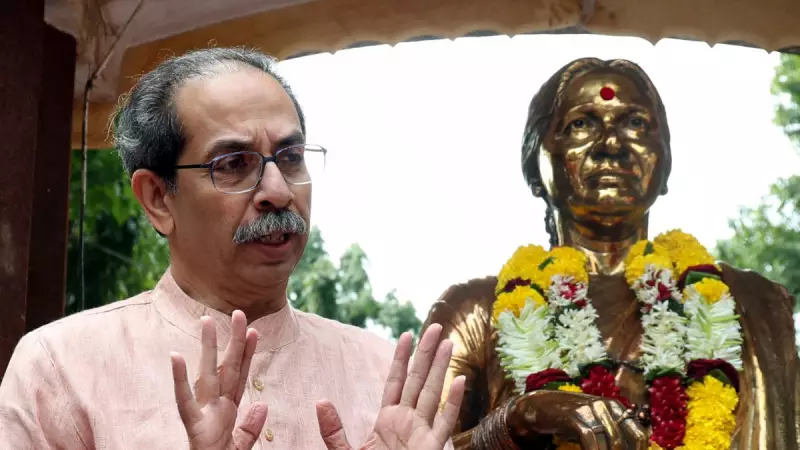
The political landscape in Maharashtra has been shaken by fresh tensions within the ruling Maha Vikas Aghadi (MVA) alliance. Shiv Sena (UBT) chief Uddhav Thackeray has publicly criticized the Congress party for its decision to contest the upcoming Brihanmumbai Municipal Corporation (BMC) elections independently, signaling potential cracks in the opposition coalition.
Thackeray's Sharp Criticism of Congress Move
Uddhav Thackeray did not mince words when addressing the Congress party's unilateral decision to go solo in the crucial BMC polls scheduled for 2025. The former Maharashtra chief minister expressed his disappointment with the Congress leadership, stating that such moves undermine the unity of the opposition alliance at a time when solidarity is most needed.
The timing of this development is particularly significant as it comes just months before the important municipal elections in India's financial capital. Thackeray emphasized that the Maha Vikas Aghadi partners should have discussed the strategy collectively rather than individual parties making independent decisions that could weaken the alliance's overall position.
Background of the Maha Vikas Aghadi Alliance
The Maha Vikas Aghadi is a coalition of three major political parties in Maharashtra: Shiv Sena (UBT), Congress, and Nationalist Congress Party (NCP). This alliance was formed in 2019 after a surprising political realignment that saw traditional rivals coming together to form the state government.
The coalition has faced numerous challenges since its inception, including ideological differences and external pressure from opposing political forces. The BMC elections represent one of the first major electoral tests for the alliance since the dramatic split in Shiv Sena that saw Uddhav Thackeray leading one faction while Eknath Shinde heads the other with BJP support.
Mumbai's municipal corporation is not just any local body - it controls one of the largest municipal budgets in the country and holds significant political influence. The outcome of BMC elections often serves as a barometer for the political mood in Maharashtra.
Political Implications and Future Scenarios
The public criticism from Thackeray indicates growing frustration within the alliance about coordination and decision-making processes. Political analysts suggest that this could have far-reaching consequences for the opposition's prospects not just in Mumbai but across Maharashtra.
Several factors make this development particularly noteworthy: First, the Congress party's decision to contest independently suggests they believe they can perform better without alliance partners in certain constituencies. Second, Thackeray's public criticism indicates that private discussions may not have yielded the desired coordination.
The situation creates a complex political scenario where the Maha Vikas Aghadi partners might end up competing against each other in some wards while cooperating in others. This could potentially split the anti-BJP vote and benefit the ruling coalition at the state level.
As the November 2025 BMC elections approach, all eyes will be on how the three parties navigate this tension. Will they find a middle ground through seat-sharing arrangements, or will they proceed with fragmented strategies that could weaken their collective position?
The coming weeks will be crucial for the future of the Maha Vikas Aghadi alliance, as the parties need to resolve their differences and present a united front against their political opponents. The outcome could determine not just the control of Mumbai's municipal corporation but also the stability of the opposition alliance in Maharashtra politics.





